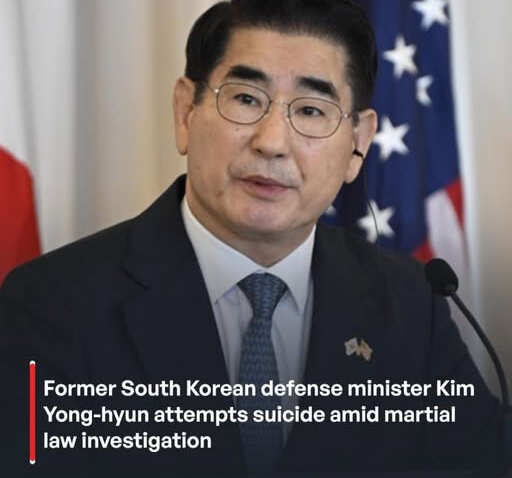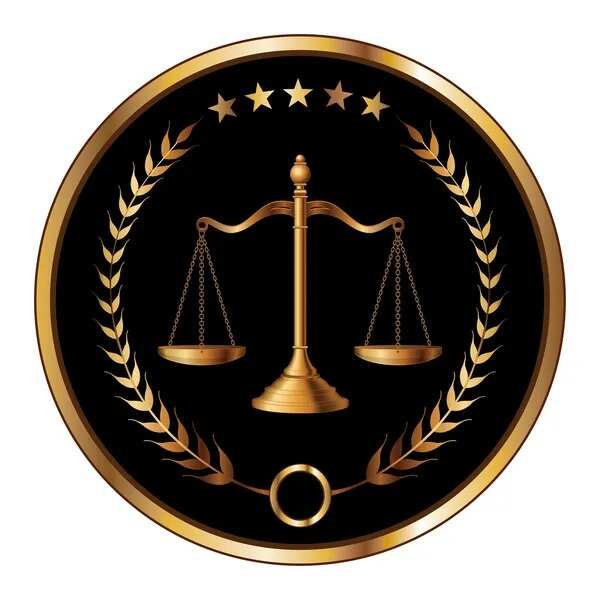Legal Implications of Kim Yong-hyun's Suicide Attempt and Martial Law Controversy in South Korea

Former South Korean Defence Minister Kim Yong-hyun's recent suicide attempt on December 11 has given an already severe political and legal problem a very personal and sad aspect. Kim is the focus of a high-stakes probe on his purportedly active support of the contentious martial law imposition earlier this month. Not only regarding Kim's acts but also the more general constitutional and criminal ramifications surrounding the martial law order, this incident begs important legal issues.
Kim's attempt to take his life while under custody coincided with his continuous inquiry for his suspected influence in guiding President Yoon Suk Yeol to impose martial law. Now under close examination is this action, which would have sent military personnel to stop legislators from casting votes. In an unexpected broadcast speech on December 3, President Yoon declared the decree accusing opposition parties of supporting North Korea and participating in "anti-state activities." The order resulted in security personnel storming the National Assembly to censor legislators, but it was reversed only six hours later, generating strong criticism and legal questions.
Treason Charges and Possible Outcomes
The martial law proclamation set off a series of enquiries on whether President Yoon and his allies mistused their authority. Kim and other officials are accused of treason since their behaviour might have violated the constitution of South Korea. Treason charges under South Korean law are highly serious and incur heavy fines. Depending on the particulars of the case, a conviction of treason can lead to life in prison or a death sentence.
The martial law recommendation has far-reaching legal repercussions. The constitution of South Korea guarantees a democratic form of governance; so, any attempt to challenge or bypass this system—especially by military force—could be interpreted as an attack on the democratic values of the country. Given South Korea's past of military-backed authoritarian government, the use of the military to meddle in political processes is especially delicate; so, the present study is all the more crucial in preserving the democracy of the nation.
Establishment of a Special Council
Reacting to the mounting criticism, the South Korean National Assembly has established a special panel to look at whether President Yoon's actions qualify as a revolt or a constitutional authority breach. This council will be charged with deciding whether legal values safeguarding the legislative process were broken and whether martial law was imposed with intentional abuse of power.
For President Yoon and his government, the council's conclusions might have significant legal ramifications. Should the council find that martial law was proclaimed illegal or that it was an abuse of authority, impeachment processes against the president might follow. The feasibility of such procedures would call into doubt the legal limitations of presidential power in South Korea and would have more general consequences for political responsibility.
Legal Position and Safety in Detention for Kim Yong-hyun
Legal challenges against Kim Yong-hyun put pressure on the government to guarantee his safety while he is in custody. Kim's suicide attempt has attracted attention to the psychological toll the research and accompanying demands are causing on him. Under South Korean legislation, those under detention have to be given sufficient care and supervision, especially in cases when they run the danger of hurting themselves.
The Korea Correctional Service bears legal responsibility for Kim's safety; the authorities have been advised of the requirement of acting in all required capacity to stop more accidents. This covers making sure inmates who could be at danger get regular monitoring and counselling as well as physical and mental wellness protection measures.
More general Constitutional and Legal Issues
This developing situation begs more general legal issues about the balance of power in South Korean government. The occurrence involving the martial law has underlined possible flaws in the system of checks and balances as well as issues about the appropriate application of military power in political affairs. Future debates on the boundaries of executive authority and the function of the military in South Korean politics will probably be shaped by the continuous investigations and judicial actions.
All things considered, Kim Yong-hyun's suicide attempt's legal ramifications as well as the martial law debate have several and complex effects. The nation has to address important constitutional issues about the misuse of presidential authority, the rule of law, and the defence of democratic institutions as enquiries go on. These legal procedures' result will probably have long-lasting consequences on South Korea's legal system and political environment.
--
